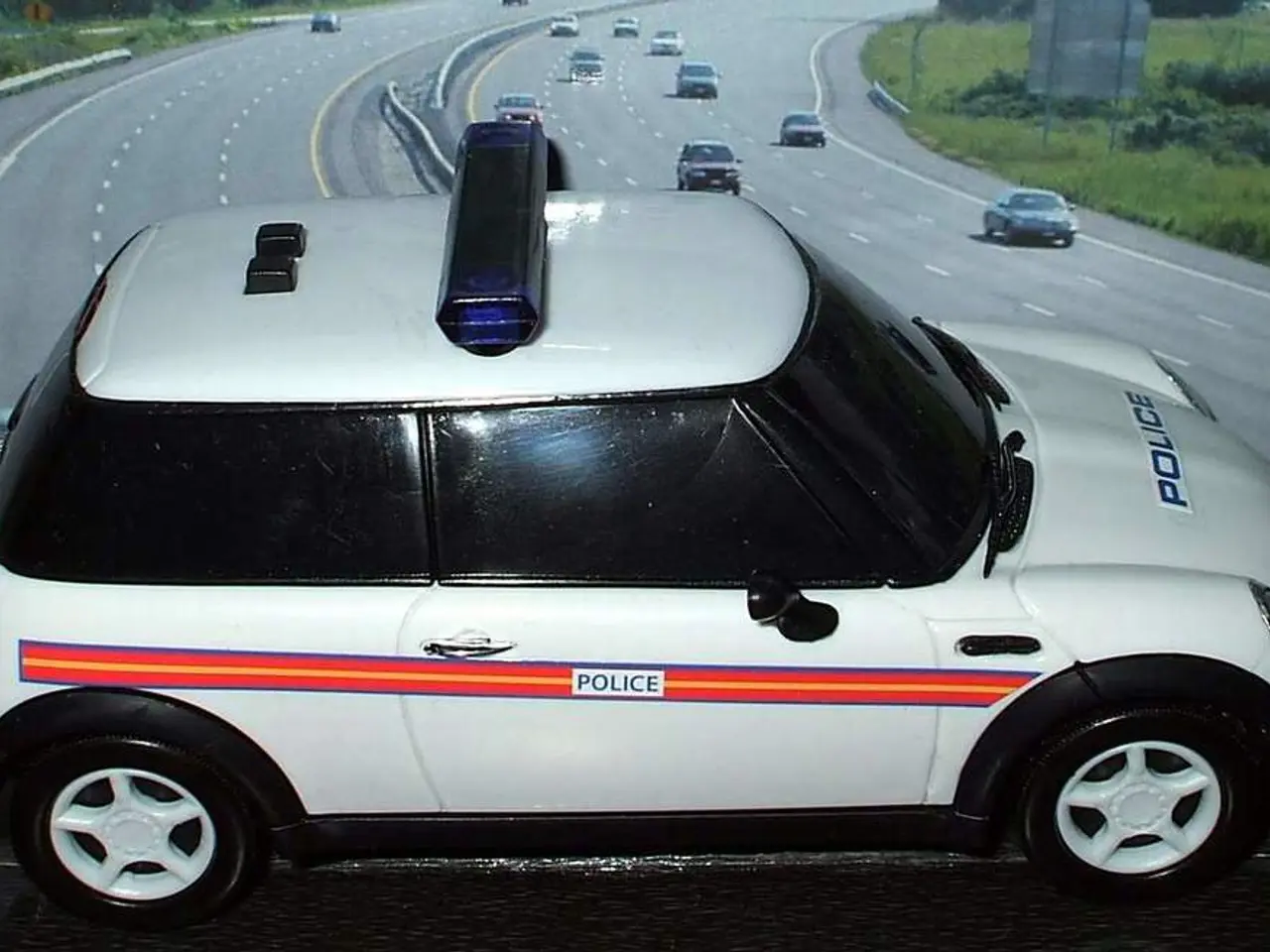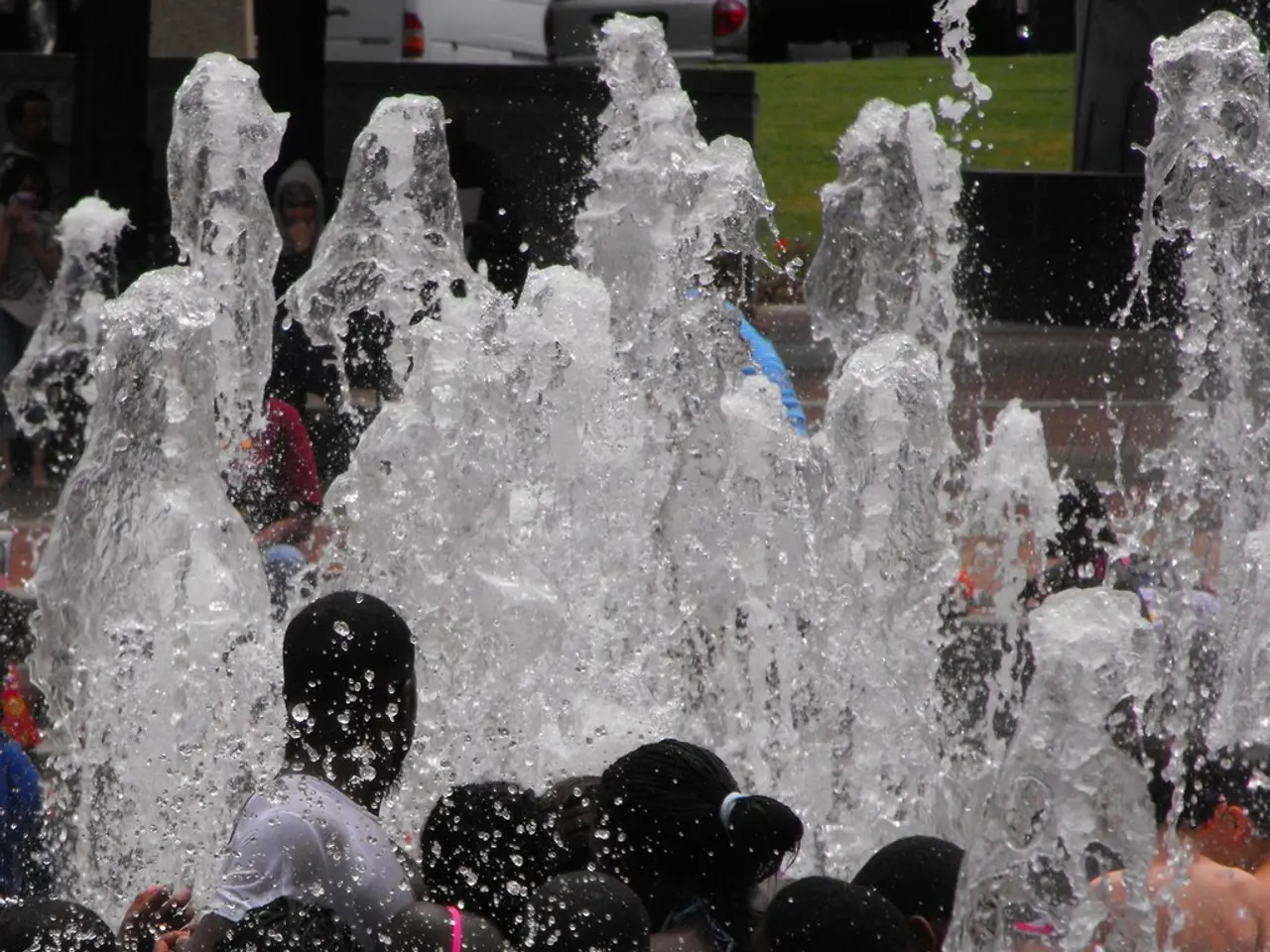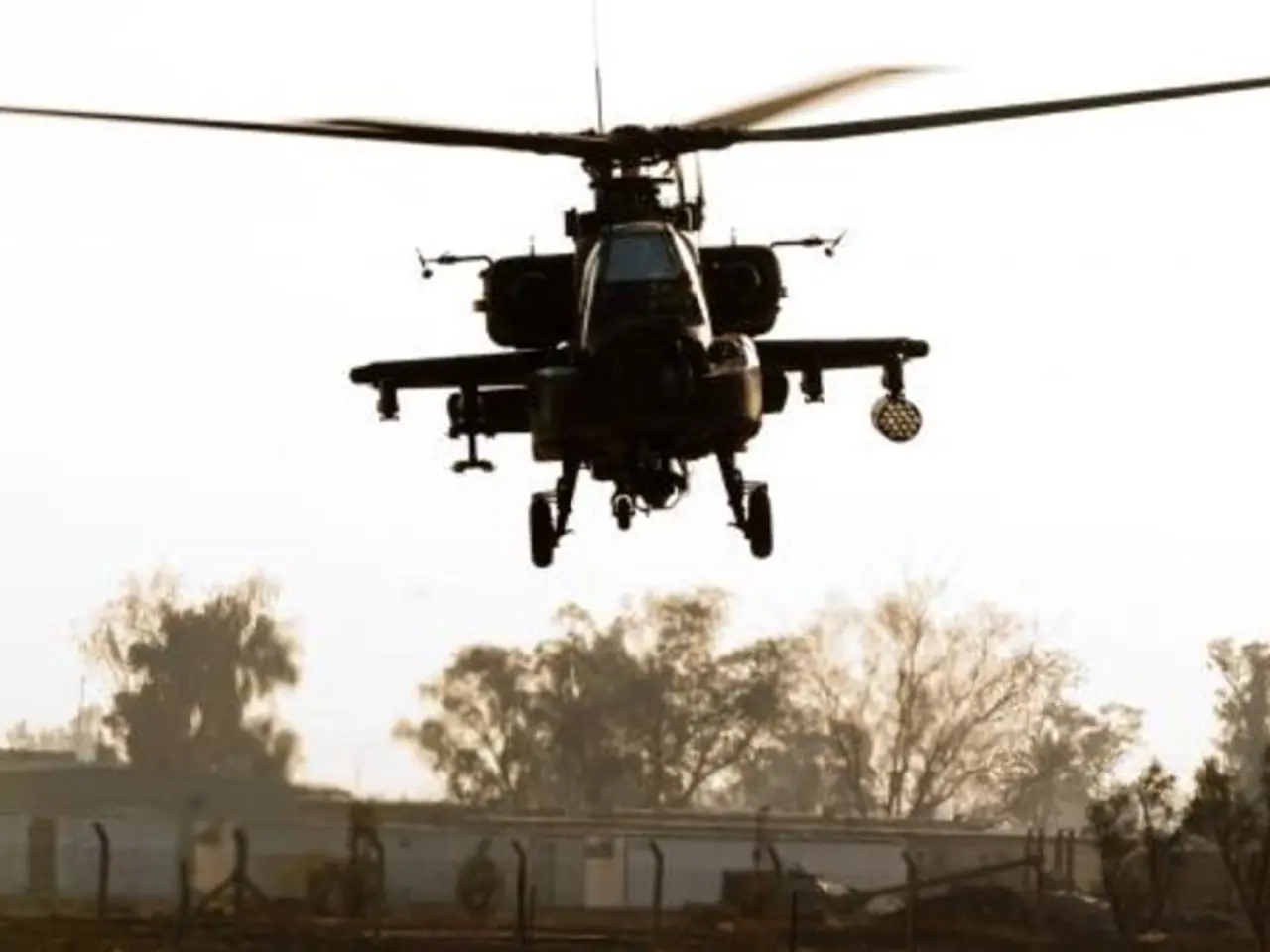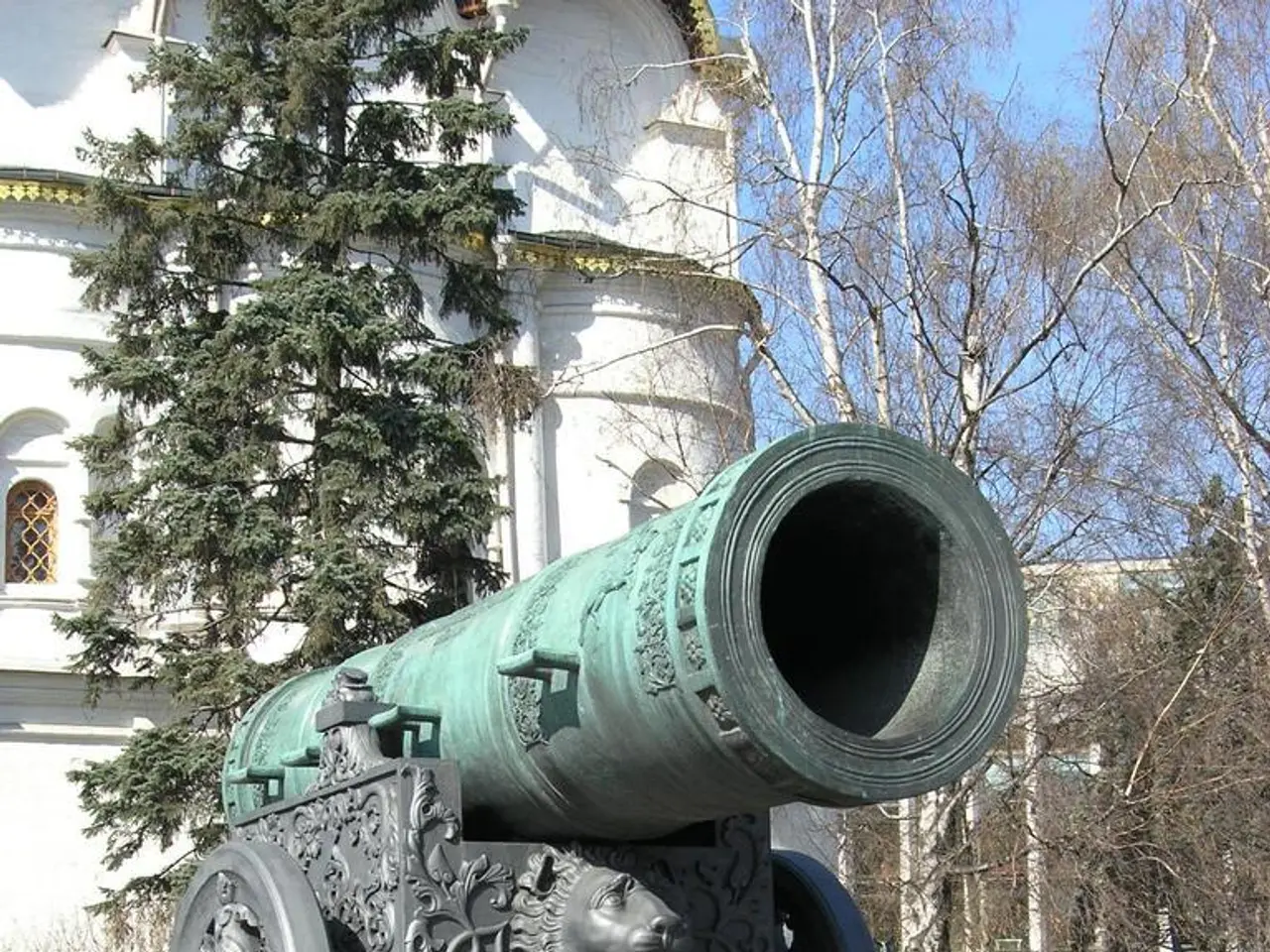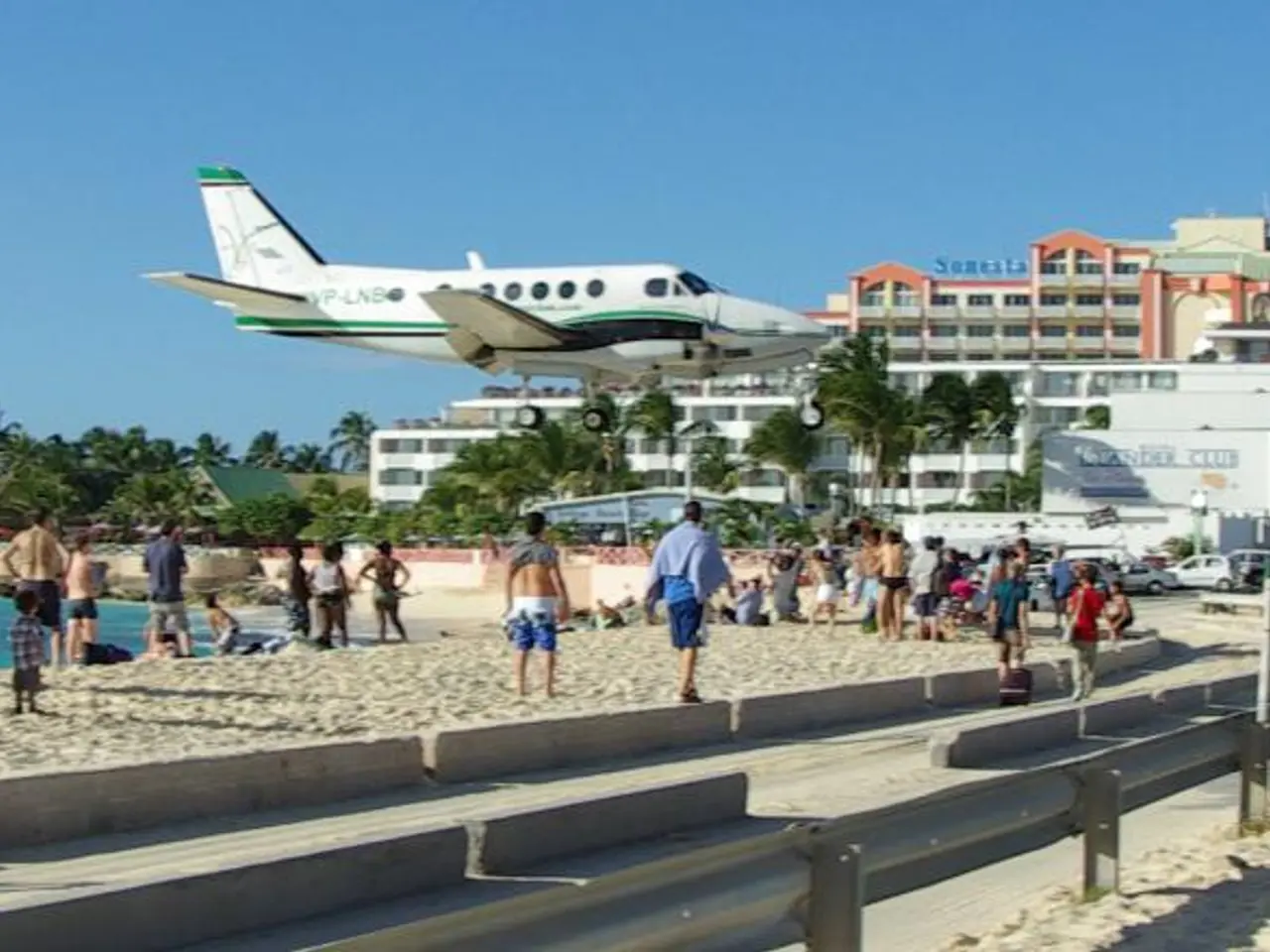Federal forces dispatched in Washington D.C., under Trump's command
In a move aimed at restoring public order and enhancing safety in the nation's capital, the Trump administration has increased federal law enforcement presence in Washington, D.C. This initiative, announced in March 2025, is a coordinated effort involving multiple federal agencies, such as the FBI, DEA, U.S. Marshals, Secret Service, Park Police, and others, along with deployment of National Guard troops [1][2][4][5].
The Purpose of this surge is twofold: to counter rampant violent crime, gang violence, and public disorder, and to address issues like clearing homeless encampments and improving the city's infrastructure and public safety. President Trump characterised the situation as a national disgrace threatening federal operations and vowed to make D.C. safe, clean, and beautiful again [4][5]. Federal agents were already on patrol before the announcement, and 800 National Guard troops were authorized, with 100-200 typically supporting law enforcement on the ground at a time [1][2].
The Duration of this enforcement action was initially limited: Trump's federal takeover of the D.C. police force was authorized for 30 days, after which the continuation of federal control would require Congressional approval. However, Trump publicly indicated plans to seek "long-term extensions" to keep federal law enforcement in control beyond the initial month, insisting that 30 days was insufficient to address the problems fully [3].
The federal patrols will focus on tourist attractions and known hotspots. The Trump administration believes local law enforcement alone is insufficient to prevent crime in Washington, D.C. [6]. The high-profile carjacking incident involving a former DOGE staffer known as "Big Balls" [7] further emphasised the need for action, leading to the suggestion of federal intervention by President Trump [8].
Crime statistics support the need for intervention. In 2023, Washington, D.C. had the fourth highest homicide rate in the country [9]. U.S. District Attorney for D.C., Jeanine Pirro, stated that a significant amount of crime in Washington, D.C. is being committed by young people [10]. President Trump has expressed concern about the frequency of such incidents, stating, "There's too much of it" [8]. He has also suggested charging minors involved in violent crime as adults [11].
In summary: - The Trump administration’s task force is a coordinated increase of multiple federal law enforcement agencies and National Guard troops in D.C., leveraging emergency powers under the Home Rule Act and Self-Government Act. - The objective is to suppress violent crime, restore public safety, remove homeless encampments, and revitalize the city’s appearance and federal functioning. - The federal control over D.C. law enforcement is temporary, authorized for 30 days initially, with efforts underway to seek longer-term Congressional approval for extended federal involvement [1][2][3][4][5]. - The federal patrols targeting crime in Washington, D.C. will focus on tourist attractions and known hotspots. - President Trump stated that the crime rate in Washington, D.C. is high and compared it unfavorably to other locations. - President Trump has suggested charging minors involved in violent crime as adults.
The temporary surge in federal law enforcement presence in Washington, D.C., also includes National Guard troops, aims to address not only violent crime and gang violence but also to improve public safety and city infrastructure. In the future, President Trump plans to seek long-term extensions to keep this enforcement action in place longer than the initial 30 days, as it is believed local law enforcement alone is insufficient to tackle crime in the city.
This increased federal presence in Washington, D.C.'s 'general-news' and 'crime-and-justice' sectors stems not only from the high crime rates, including a fourth-highest homicide rate in the country in 2023, but also from specific incidents, such as the high-profile carjacking of a former DOGE staffer, which underscore the urgency for intervention.
